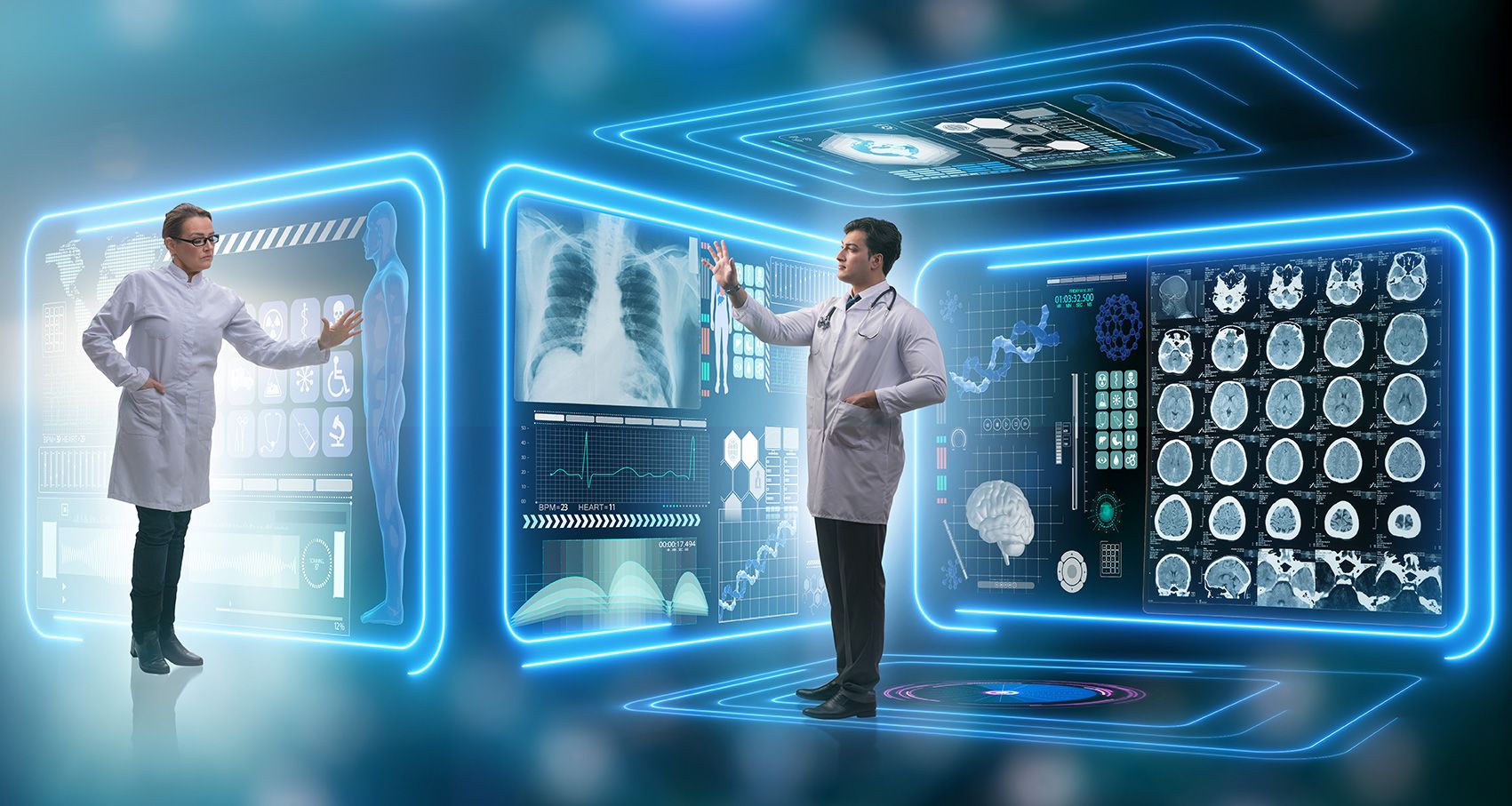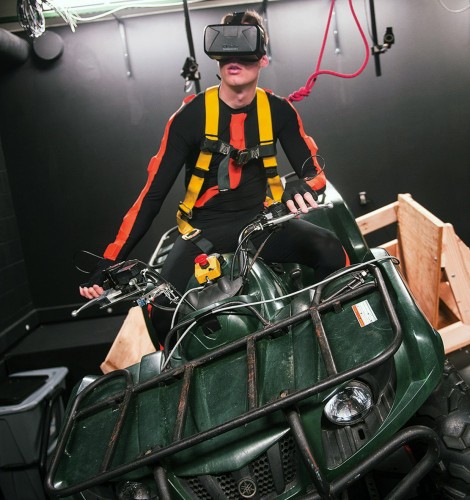From Telemedicine to AI: How Digital Health Technology is Shaping Modern Healthcare?

Telemedicine: revolutionizing patient care
Telemedicine has emerged as a game-changing technology in the healthcare landscape, breaking down barriers and making healthcare more accessible to patients around the globe. Telemedicine enables healthcare providers to deliver medical services remotely, allowing patients to receive consultations, diagnoses, and treatment plans without having to visit a healthcare facility physically. This has been particularly beneficial for individuals living in rural or remote areas, as well as those with mobility issues or limited access to transportation. ?The widespread use of telemedicine has been expedited by the COVID-19 pandemic, with virtual consultations becoming the norm in a bid to reduce the spread of the virus. Telemedicine has played a critical role in not only ensuring that patients receive timely medical care but also in alleviating the burden on healthcare systems that have been stretched to their limits during the pandemic.
Additionally, telemedicine has facilitated the monitoring of patients with chronic conditions, allowing healthcare providers to keep track of their progress and make adjustments to their treatment plans as needed. ?Telemedicine has also enabled healthcare providers to collaborate more effectively, as specialists from different locations can consult with each other and make joint decisions regarding a patient's treatment plan. This has been particularly beneficial in cases where a patient's condition is too complex for a single healthcare provider to manage. In turn, this has led to improved patient outcomes and more efficient use of healthcare resources. ?
Artificial intelligence (AI) in healthcare
Artificial intelligence (AI) has the potential to revolutionize healthcare in numerous ways, from enhancing diagnostics and treatment plans to streamlining administrative tasks. AI algorithms are capable of analyzing vast amounts of data, identifying patterns, and making predictions that can assist healthcare providers in their decision-making processes. ?One of the most promising applications of AI in healthcare is in the field of diagnostics. AI-powered tools can analyze medical images, such as X-rays and MRIs, at a much faster rate than humans, often with greater accuracy. This can lead to earlier detection of diseases and conditions, resulting in more effective treatment plans and improved patient outcomes. Moreover, AI can help to identify potential outbreaks of infectious diseases by monitoring and analyzing data from various sources, enabling healthcare providers to take preventive measures and allocate resources more effectively. ?AI can also play a significant role in personalized medicine, as it can analyze an individual's genetic makeup and identify the most effective treatment options based on their specific genetic profile. This can help healthcare providers to develop more targeted treatment plans, reducing the likelihood of adverse side effects and improving overall patient outcomes. Additionally, AI can help to optimize drug development processes by analyzing the vast amounts of data generated during clinical trials and identifying potential drug candidates more quickly and efficiently. ?
Wearable devices and remote patient monitoring
Wearable devices, such as smartwatches and fitness trackers, have become increasingly popular in recent years, offering users the ability to track their health data and monitor their progress towards their personal health goals. These devices can collect a wide range of data, including heart rate, sleep patterns, and physical activity levels, which can provide valuable insights into an individual's overall health and well-being. ?Remote patient monitoring (RPM) is a rapidly growing field that leverages wearable devices and other connected technologies to monitor patient's health data in real time. This enables healthcare providers to track patients' conditions and make adjustments to their treatment plans as needed, without requiring them to visit a healthcare facility. RPM can be particularly beneficial for patients with chronic conditions, as it allows healthcare providers to keep a close eye on their progress and intervene earlier if any issues arise. ?In addition to enhancing patient care, wearable devices and RPM technologies have the potential to generate vast amounts of data that can be used to inform medical research and improve our understanding of various health conditions. By analyzing this data, researchers can identify trends and correlations, which can lead to the development of new treatment options and preventive strategies. ?
Virtual Reality (VR) in medical training and therapy
Virtual Reality (VR) technology has made significant strides in recent years, and its applications in the healthcare industry are becoming increasingly diverse. One of the most notable uses of VR in healthcare is in the realm of medical training, where it offers a safe and controlled environment for healthcare professionals to practice their skills and learn new procedures. ?By using VR simulations, medical students and practitioners can gain valuable hands-on experience without the risk of causing harm to real patients. This can help to improve their confidence and competence, ultimately leading to better patient outcomes. Moreover, VR training can be easily updated and adapted to reflect changes in medical guidelines and best practices, ensuring that healthcare professionals stay up-to-date with the latest advancements in their field. ?In addition to its applications in medical training, VR technology is also being used as a therapeutic tool for a variety of conditions, including chronic pain, post-traumatic stress disorder (PTSD), and anxiety disorders. VR therapy can provide patients with immersive and interactive experiences that can help them to confront and overcome their fears, as well as manage their pain and stress levels more effectively. As technology continues to advance, it is likely that we will see even more innovative applications of VR in the healthcare industry. ?
The Future of digital health technology
As digital health technology continues to evolve, there is little doubt that it will play an increasingly prominent role in shaping the future of healthcare. One area in which digital health technology is likely to have a significant impact is in the realm of data management and analysis. With the proliferation of wearable devices and remote patient monitoring technologies, the amount of health data being generated is set to increase exponentially, and advanced analytics tools and AI algorithms will be needed to process and make sense of this information. ?In addition to enhancing diagnostics and treatment plans, digital health technology has the potential to transform the way healthcare providers interact with their patients. Telemedicine, for example, is likely to become an even more prevalent feature of modern healthcare, enabling patients to access medical services from the comfort of their own homes. Furthermore, digital health technology can help to empower patients by giving them greater control over their health data and providing them with the tools they need to manage their conditions more effectively. ?Finally, digital health technology has the potential to drive innovation in the healthcare industry by facilitating collaboration and knowledge-sharing among healthcare providers, researchers, and other stakeholders. By harnessing the power of digital health technology, we can create a more connected, patient-centric, and data-driven healthcare ecosystem that is better equipped to meet the challenges of the future. ?
Conclusion
From telemedicine to AI, digital health technology is undeniably reshaping the landscape of modern healthcare. The advancements in telemedicine, AI, wearable devices, and virtual reality have already had a profound impact on the way patients access medical services, as well as how healthcare providers diagnose, treat, and monitor health conditions. As these technologies continue to evolve, we can expect to see even more innovative applications and solutions that will further enhance the patient experience and improve medical outcomes. By embracing these cutting-edge innovations and harnessing the power of digital health technology, we can pave the way for a more connected, patient-centric, and data-driven future in medicine.







 Call
Call
 Mail
Mail